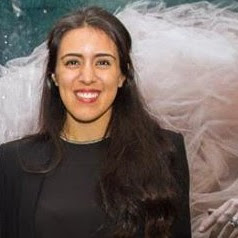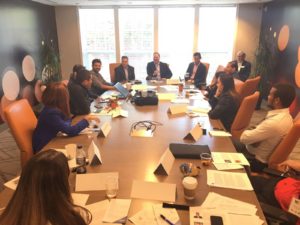
Maria Jimena Flores is the founder and CEO of Medical Salud. She is one of 248 fellows participating in the Young Leaders of the Americas Initiative (YLAI) Professional Fellows Program, a presidential initiative that empowers entrepreneurs and innovative civil society leaders from Latin America and the Caribbean. YLAI focuses on strengthening their capacity to launch and advance their entrepreneurial ideas and effectively contribute to social and economic development in their communities.
During my YLAI fellowship, I have worked with five different people who were my “fellowship hosts” and mentors in ACCESS Healthcare network. This is because ACCESS is a big company and I wanted to learn about internal processes from different areas and internal communication. As I could not make just one video with all of them, here is a summary of all the experiences and learnings that we have exchanged.
MY 5 INCREDIBLE FELLOWSHIP HOSTS FROM ACCESS HEALTHCARE NETWORK
Tariq Butt: Dr. Tariq Butt is my official host from ACCESS, he is one of the founders of ACCESS Healthcare network, and he is the one who introduced me the organization and all the areas I worked with.
Reginald McCoy: Regi is project manager for medical services and he was the person I charge of creating my agenda for all the days I have been in ACCESS. Some days I spent time with him to understand how the company works, how the areas interact with each other, and in which way the processes are follow-up using a software called EPIC.
Siga Vasaitis: She is project manager for clinical operation. I worked with her for a whole week to learn about internal processes for medical centers and about how DPI worked. She also let me attend audits of two medical centers in Chicago and explained to me how good practices are created and measured. She also invited me to a manager’s training where I was trained as a medical center manager from ACCESS.
Suzanne Snyder: She works in the area of Behavioral Health. She collaborates with a team to design special programs and services to help low-income people have social support if they are at risk because of poverty, mental disorder illnesses, and other risks that affect social development.
Sheila Biggz: She is in charge of the web and social media communication. She creates online and offline campaigns to have a significant impact on communities and help ACCESS reach more people. I worked with her and learned specific strategies for reaching specific groups in social media. She also explained to me how they work with budgets and governmental funds for each program.
Good internal practices: I attended a manager’s training at which I learned how workflow and internal communication work between physicians and administrative staff and how a particular software is used to accomplish these tasks.
Grow local: During meetings with directors of different areas I learned the way in which they measure how employees are converting daily actions into revenues and how they implement a method with clinics called “Dramatic Performance Improvement.”
Decent and dignify healthcare service for low-income people: I have learned the way an excellent and high-quality health care service should be offered for low-income people and how to communicate prevention services to them. I was able to talk with physicians and understand how they design and develop healthcare programs for HIV awareness, Behavioral Health, and other programs.
HOW THIS HAS HELPED TO IMPROVE MEDICAL SALUD ARGENTINA
I learned the way ACCESS develops Dramatic Performance Improvement method. After analyzing the best way it would work for Medical Salud-Argentina, I would like to extrapolate this method to improve workflow and internal communication between physicians and administrative staff.
This will help us to develop our internal software for managing daily tasks and measuring how employees are converting actions into revenues in an efficient way. We look forward to internal audit processes and find out alternatives ways costs can be reduced.
I plan to follow up the implementation of this methodology to offer a more dignified healthcare service for low-income people by designing prevention services and by allowing every staff member a voice in more simple internal processes.

















